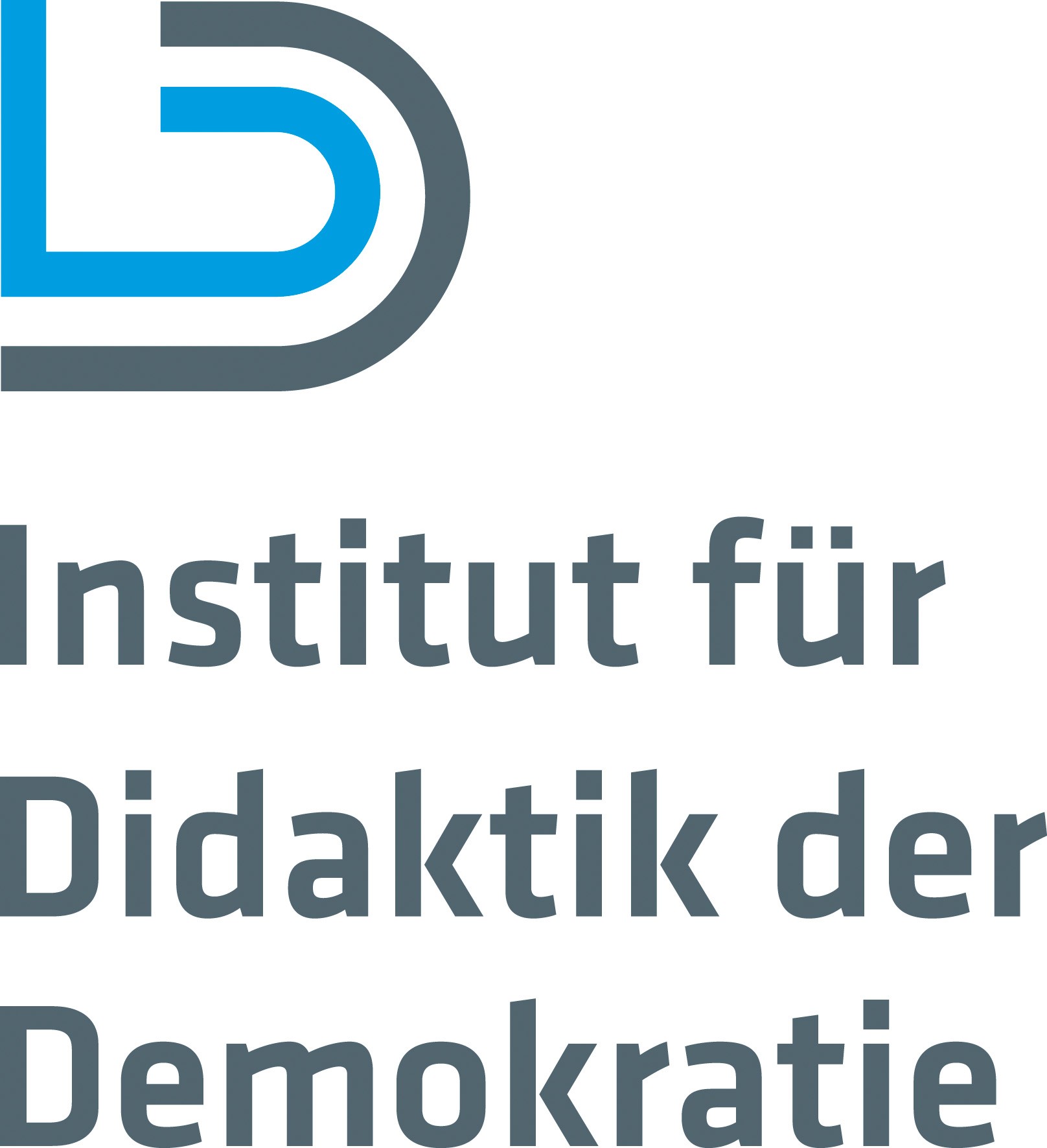


National Socialist Germany committed the most serious human rights violations in Europe during its dictatorship and World War II. Numerous countries were occupied by the National, others cooperated with the German Reich. But everywhere in Europe between 1933 and 1945, there were people who opposed the National Socialist crimes and offered resistance. Their actions were guided by a focus on human rights, the restoration of the rule of law and the liberation of their countries from National Socialism.
Today, resistance against National Socialism is increasingly viewed from a transnational perspective. The project "RESIST 1933–1945. In the name of human rights. Teaching/learning materials dealing with resistance against National Socialism in Europe using the example of France and Germany 1933-1945" provides educational materials on this topic.
The materials are available in German and French language.
Contact
Project Lead
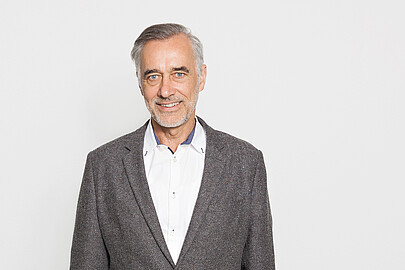
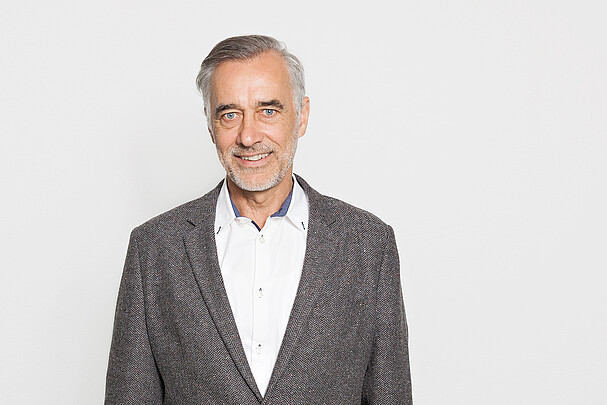
30167 Hannover


Project Manager
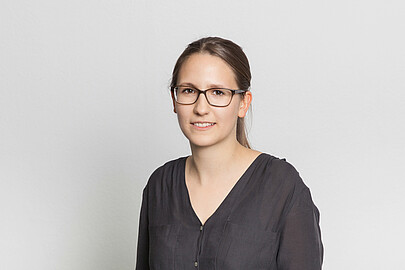
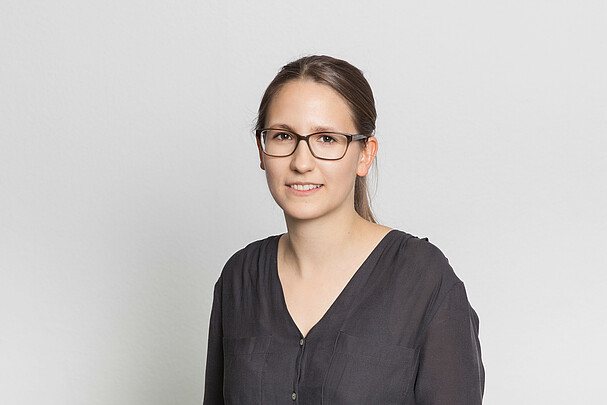
30167 Hannover


Project
National Socialist Germany committed the most serious human rights violations with its dictatorship, war of annihilation, occupation and "racial policy". These included the genocide of European Jews and Sinti and Roma. Opposing these crimes, focusing on human rights and the restoration of justice guided the actions of people in the resistance. Although dealing with the resistance in Europe can make a significant contribution to democracy and human rights education, there are hardly any corresponding teaching/learning materials available to date. This applies in particular to digital offerings. However, digital access not only offers the possibility of a transnational exchange, for example for transnational youth encounters, but also creates new opportunities for engaging with the historical subject matter from a comparative perspective and dealing with its significance for the present.
Objectives and Project Results
As part of the project, biographical materials and an educational guide for the implementation of learning programmes in binational youth exchanges and educational settings at schools, memorials and other learning contexts are being developed in a transnational cooperation between different institutions of historico-political education. Furthermore, a digital exhibition will be designed that offers an interactive and multidimensional approach to the people of the resistance through different levels of mediation. Once completed, the digital exhibition should be expandable in terms of its content, e.g. also in cooperation with youth projects, so that it can in principle also be transferred to other contexts, for example with regard to resistance biographies from other European countries.
Results
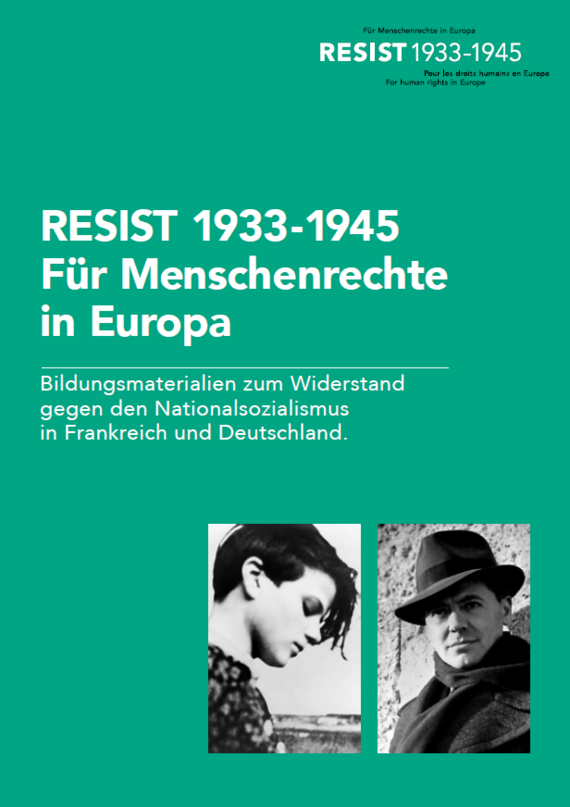
RESIST Handbook
The RESIST Handbook offers a wide range of educational materials in French and German on resistance against National Socialism in France and Germany between 1933 and 1945.
The educational materials are targeted at students between 12 and 18 years old and are available in plain German or French.
The handbook consists of:
- biographies of French and German members of the resistance
- didactic and methodological guidelines and elaborations
- exemplary course plans
- additional source materials to work with the biographies
-
Individual Chapters of the Handbook (German)
Introduction texts (German):
- Der Nationalsozialismus in Deutschland (1933–1945)
- Die deutsche Besatzung und die Vichy-Regierung in Frankreich (1940–1944)
- Widerstand gegen den Nationalsozialismus in Deutschland
- Widerstand gegen den Nationalsozialismus und das Vichy-Regime in Frankreich
Biographies (German):
- Addi Bâ: Flucht in den Maquis
- Marianne Cohn: Fluchthilfe für jüdische Kinder
- Marthe Gaillard: Illegale Zeitungen verteilen
- Charles de Gaulle: Gründer der Résistance extérieure
- Alexandre Glasberg: Verstecke organisieren
- Juliette Kaechelé: Zum Widerstand aufrufen
- Gertrud „Mucki“ Koch: Sich nicht vereinnahmen lassen
- Théodose „Tom“ Morel: Im Maquis kämpfen
- Jean Moulin: Die Résistance vereinigen
- Harald Poelchau: Hilfe für Verfolgte
- Eugène Pons: Illegale Flugschriften drucken
- Otto Rosenberg: Widerstand von Sinti und Roma
- Dora Schaul: Informationen weitergeben
- Sophie Scholl: Flugblätter verteilen
- Tony Sender: Widerstand aus dem Exil
- Jeannine Sontag: Sabotage gegen die Besatzer
- Claus Schenk Graf von Stauffenberg: Umsturzversuch vom 20. Juli 1944
- Hans Stock: Aus der Armee desertieren
- Germaine Tillion: Widerstandsnetzwerke bilden
- Suzanne Wesse: Kontakt zu Kriegsgefangenen knüpfen
Questions and tasks (German): Fragen und Arbeitsaufträge
-
Individual Chapters of the Handbook (French)
Introduction texts (French):
- Le nazisme (1933-1945)
- La France sous l'occupation allemande et le gouvernement de Vichy (1940-1944)
- La Résistance au nazisme en Allemagne
- Résistance au nazisme et au gouvernement de Vichy en France
Biographies (French):
- Addi Bâ
- Marianne Cohn
- Marthe Gaillard
- Charles de Gaulle
- Alexandre Glasberg
- Juliette Kaechelé
- Gertrud „Mucki“ Koch
- Théodose „Tom“ Morel
- Jean Moulin
- Harald Poelchau
- Eugène Pons
- Otto Rosenberg
- Dora Schaul
- Sophie Scholl
- Tony Sender
- Jeannine Sontag
- Claus Schenk Graf von Stauffenberg
- Hans Stock
- Germaine Tillion
- Suzanne Wesse
Questions and tasks (French): Exemples de questions et de consignes de travail
Digital Offer
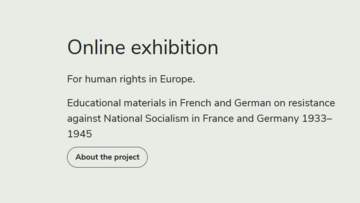

News & Events
RESIST Online Closing Event
Programme:
16:00: Start & welcome by the project team
16:15: Keynote: The resistance against National Socialism in Germany, Prof. Dr Johannes Tuchel (Director of the German Resistance Memorial Centre, Berlin)
16:30: Keynote: The resistance against National Socialism in France, Séverine Koprivnik (Mémorial National de la prison de Montluc, Lyon)
16:45: Presentation of the main project results
Moderation: Julia Albert (German Resistance Memorial Centre, Berlin); Héloïse Levecque (Mémorial National de la prison de Montluc, Lyon)
17:10: Exchange in workshops
Workshop A: Working with biographies of people who resisted National Socialism in Germany and France - potential for historico-political learning in intercultural contexts
Moderation: Jessica Burmester-Kock and Lukas Fender (Institute for Didactics of Democracy, Hanover); Isabelle Doré-Rivé and Marie-Liesse Zambeaux (Centre d'Histoire de la Résistance et de la Déportation, Lyon)
Workshop B: Resistance in a dictatorship - what can we learn from the past? Moderation: Gabriella Girel (Cité Scolaire Internationale, Lyon) and Prof Dr Frieder Meyer-Krahmer (Carl and Anneliese Goerdeler Foundation, Leipzig)
17:40: Joint final discussion
18:00: End of the event
Past Project Events
-
Project Meetings
RESIST Project Meetings 2022-2024 EDS 8
-
Binational Youth Meeting Lyon 2023
RESIST Binational Youth Meeting Lyon 2023
-
Binational Youth Meeting Berlin 2023
RESIST Bionational Youth Meeting Berlin 2023
-
Multiplier Event Montluc, Lyon 2024
RESIST Multiplier Event Montluc, Lyon 2024 EDS 5
-
Multiplier Event CHRD, Lyon 2024
RESIST Multiplier Event CHRD, Lyon 2024 EDS 6
-
Multiplier Event Berlin 2024
RESIST Multiplier Event Berlin 2024 EDS 7
-
Multiplier Event Hannover 2024
RESIST Multiplier Event Hannover 2024 EDS 8
-
Multiplier Event Leipzig 2024
RESIST Multiplier Event Leipzig 2024 EDS 9
-
Online Closing Event 2024
RESIST Online Closing Event
About Us
Project Consortium
-
Institute for Didactics of Democracy, Leibniz University Hannover
As a research institute, we focus on civic education on a national and international scale. Dealing with anti-democratic tendencies and the development of tools to challenge them is one of our core competences. Within the RESIST- project, we will contribute decisively to the development of the didactic handbook and take the role of the project coordinator.
Contact Person: Jessica Burmester-Kock
![]()
![]()
![]()
-
Stiftung Gedenkstätte Deutscher Widerstand, Berlin
The German Resistance Memorial Centre in Berlin is the central place of remembrance of the resistance against National Socialism in Germany. Its task is to show in exhibitions, publications and events how a small minority of people in Germany resisted the National Socialist dictatorship between 1933 and 1945. Individuals and groups used their possibilities to resist, while the majority supported the Nazi regime or adapted to it. The educational programmes at the memorial are aimed at young people and adults.
Website: https://www.gdw-berlin.de/en/home/
![]()
![]()
-
Mémorial National de la prison de Montluc, Lyon
The Montluc prison memorial in Lyon commemorates repression and persecution during the Second World War. From February 1943, over 9,000 people were imprisoned here by the German occupying forces under inhumane conditions. Among them were many resistance fighters, such as Jean Moulin, and many Jews. Most of the prisoners were deported from here to concentration and extermination camps. Since 2010, the site has been a state memorial under the direction of ONACVG.
Website: https://www.memorial-montluc.fr/
![]()
![]()
-
Centre d’Histoire de la Résistance et de la Déportation, Lyon
The Centre d'Histoire de la Résistance et de la Déportation is housed in the former military health school and is an emblematic place in the service of history and remembrance in Lyon. The cellars of the building, where the victims of the Gestapo were held and which now house the temporary exhibitions, form the centrepiece of the museum. The centre places young visitors at the heart of its programming policy and thus contributes to the education of future citizens who are free, responsible and aware of a shared memory.
Website: https://www.chrd.lyon.fr/
![]()
![]()
![]()
-
Carl und Anneliese Goerdeler-Stiftung
The name of the Goerdeler Foundation refers in particular to Carl Friedrich Goerdeler, one of the leading civilian figures in the resistance against National Socialism on 20 July 1944. Since 2016, the foundation has been initiating and supporting international student meetings that deal with the resistance against National Socialism or other dictatorships.
Website: http://www.goerdeler-stiftung.de/
![]()
![]()
![]()
Associated Partner
-
Cité Scolaire Internationale, Lyon
The Cité Scolaire Internationale of Lyon is a French public school with ten international sections from pre-school to the Baccalauréat. Literature, history and geography are taught in the national language of each section.
![]()
![]()
![]()



Funded by the European Union. Views and opinions expressed are however those of the author(s) only and do not necessarily reflect those of the European Union or the European Education and Culture Executive Agency (EACEA). Neither the European Union nor EACEA can be held responsible for them.
Project Number: 101051075
